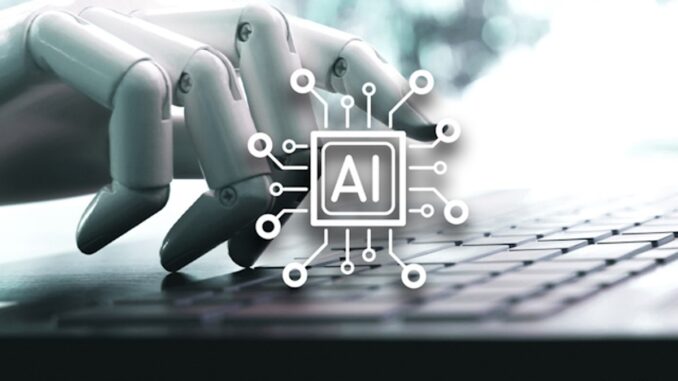
The transformative potential of Artificial Intelligence (AI) is profound, influencing a multitude of sectors and reshaping the way we interact with technology,
conduct business, and address societal challenges. Here’s a deeper exploration of its transformative potential across various domains:









### 1. **Healthcare Revolution**
– **Enhanced Diagnostics**: AI can analyze medical images (like X-rays and MRIs) more accurately and rapidly than human experts, aiding in early detection of diseases.
– **Predictive Health Analysis**: Machine learning models analyze patient data to predict health risks, which can lead to early interventions and personalized treatment plans.
– **Telemedicine and Virtual Health Assistants**: AI-powered chatbots and virtual assistants provide patients with instant access to medical information, appointment scheduling, and symptom assessments.
### 2. **Economic Transformation**
– **Increased Productivity**: AI automates routine tasks in manufacturing and services, allowing human workers to focus on complex problem-solving and creativity, ultimately increasing productivity.
– **New Business Models**: The rise of AI has led to the emergence of innovative business models, such as subscription services, predictive maintenance, and personalized marketing, changing how businesses fundamentally operate.
– **Market Analysis**: AI systems can analyze market trends and consumer behavior, providing businesses with insights that guide strategic decisions.
### 3. **Sustainability and Environmental Impact**
– **Smart Resource Management**: AI optimizes energy consumption in homes, buildings, and industries by predicting usage patterns and adjusting settings for efficiency.
– **Conservation Efforts**: AI technologies help monitor endangered species and track illegal activities like poaching through automated surveillance systems.
– **Agricultural Innovations**: AI applications in precision agriculture enhance crop management by analyzing soil health, weather data, and pest behavior, minimizing resource use and environmental impact.
### 4. **Transforming Education**
– **Personalized Learning Experiences**: AI creates adaptive learning environments that tailor content and assessments to individual student needs, enhancing engagement and effectiveness.
– **Administrative Efficiency**: AI automates administrative tasks such as grading and scheduling, allowing educators to devote more time to teaching and mentoring.
– **Access to Quality Education**: AI platforms make quality educational resources accessible to learners worldwide, breaking geographical and socioeconomic barriers.
### 5. **Smart Urban Planning and Infrastructure**
– **Traffic Management Systems**: AI enhances urban mobility by optimizing traffic flows and reducing congestion through real-time data analysis and predictive modeling.
– **Infrastructure Maintenance**: Predictive maintenance powered by AI prevents failures in critical infrastructure by analyzing wear and tear, helping cities maintain essential services efficiently.
### 6. **Ethical AI and Governance**
– **Transparent Decision-Making**: AI systems help analyze vast amounts of data to inform evidence-based policy decisions, leading to more responsive governance.
– **Civic Engagement**: AI can facilitate citizen participation through tools that analyze public sentiment and gather feedback on urban projects and policies.
### 7. **Cultural and Creative Innovations**
– **Art and Music**: AI is being used in creative fields to generate art, music, and literature, creating new forms of expression and sparking discussions about creativity and authorship.
– **Cultural Heritage Preservation**: AI technologies assist in the digital archiving and preservation of historical artifacts, protecting cultural heritage for future generations.
### 8. **Addressing Global Challenges**
– **Disaster Response and Management**: AI models can predict natural disasters, optimize emergency responses, and manage resources during crises.
– **Global Health Initiatives**: AI analytics can track and predict the spread of diseases, support vaccine distribution efforts, and monitor global health trends.
### Challenges and Considerations
As AI continues to transform various sectors, there are several challenges and ethical considerations that must be addressed:
– **Bias and Fairness**: AI systems can perpetuate and amplify existing biases if not carefully monitored and managed, leading to unfair outcomes.
– **Job Displacement**: While AI can create new job opportunities, it can also displace workers in certain roles, necessitating reskilling and workforce transitions.
– **Privacy and Security**: The use of AI often involves collecting and analyzing large amounts of personal data, raising concerns about user privacy and data protection.
– **Ethical Considerations**: As AI systems become more autonomous, questions about accountability, transparency, and ethical decision-making arise, requiring robust frameworks to govern their use.
### Conclusion
The transformative potential of AI is immense, with the capacity to reshape economies, improve lives, and address some of the world’s most pressing challenges. However, realizing this potential requires a balanced approach that emphasizes responsible development, ethical considerations, and the inclusion of diverse perspectives to ensure that the benefits of AI are shared equitably across society. Continuous dialogue among technologists, policymakers, and the public is essential to navigate the complexities of this rapidly evolving landscape.

Leave a Reply